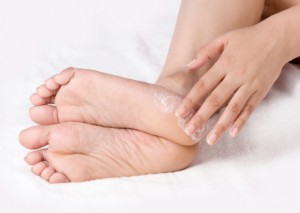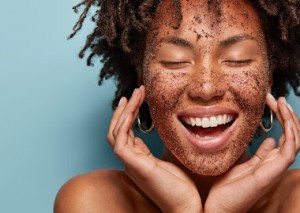
images: istock and wikimedia
Article by BR Natalie
There's nothing worse than waking up after a bad night's sleep. You feel and look terrible and even an easy day becomes thrice as difficult.
It can be easy to stress about bad sleep - which in itself is probably going to cause another night of bad sleep. So we thought we'd look at some of the causes of sleep problems and take some of the guess work out of your problem solving!
 1. Struggling to get to sleep. Your bedroom should be cool, quiet and dark. If you live in a noisy environment try a white noise machine or a fan to minimise unwanted noises. Concentrate on one soothing thought, like breathing. Don't let your thoughts wander to your worries, just try to relax and clear your mind.
1. Struggling to get to sleep. Your bedroom should be cool, quiet and dark. If you live in a noisy environment try a white noise machine or a fan to minimise unwanted noises. Concentrate on one soothing thought, like breathing. Don't let your thoughts wander to your worries, just try to relax and clear your mind.
If you're not asleep within 30 minutes of going to bed, it might be time to consider getting up and trying again in a little while. Tossing and turning and counting the minutes you have left until you need to get up will not lead to a restful night.
Get up and find something relaxing, but not stimulating to do in dim lighting. Listen to some chill-out tunes, have a soothing non sugary, non caffeinated warm drink. When you feel the strong urge to snooze it's time to try again.
2. Bad Dreams. So when scientists discovered REM (Rapid Eye Movement) sleep, they realised that there are actually two kinds of bad dreams.
Nightmares happen during the REM sleep and while they may not rouse the dreamer from the sleep state they are more likely to be remembered by the dreamer. Night Terrors on the other hand occur during the less catchy NREM (non - Rapid Eye Movement) sleep. Night Terrors cause the feeling of extreme panic and it's during Night Terrors that dreamers will shout, scream and thrash. It's also more likely that the sufferer will not remember these dreams. Unlike nightmares, it's more beneficial to wake fully (or have your partner wake you) and return to a relaxed state before attempting to sleep again.
 3 Falling. You know those dreams where you feel like you're falling? Or those awful moments where you're dreaming you're in a situation and you can't move or speak? They might not just be dreams!
3 Falling. You know those dreams where you feel like you're falling? Or those awful moments where you're dreaming you're in a situation and you can't move or speak? They might not just be dreams!
Sleep Paralysis usually happens when you are just falling to, or waking from, sleep. The paralysis is harmless but often frightening and lasts for up to several minutes. Our muscles relax with sleep, and when you awake before your muscles you're left with the feeling of paralysis. That is you are awake but you can't yet move. Sleep paralysis is normally accompanied by vivid dreams or hallucinations - notably of falling.
Sleep paralysis often occurs when people are sleep deprived, so getting eight hours of regular rest a night should limit the episodes.
4. Asleep and confused. If you awaken wondering where you are or feeling drunk you're having a Confusion Arousal. As the wife of a sufferer I can tell you - it's as weird as it is amusing to watch. It will usually happen during the first half of the deep NREM sleep, a sufferer will often sit up, look around and appear very awake and alert. But they'll move slowly, like they're drunk, dazed and confused. Most, like my husband, will not remember the episodes.
 5. Too much screen time. First there was the bedroom TV set. Now our bedrooms have been invaded by screens. Laptops, iPads, smartphones, Kindles. Heck, most of us are probably guilty of 'watching tTV' whilst playing with our tablet or phone. Too much screen time leads to over stimulation and if you're over stimulated you are not going to get to sleep easily, let alone rest easy through the night.
5. Too much screen time. First there was the bedroom TV set. Now our bedrooms have been invaded by screens. Laptops, iPads, smartphones, Kindles. Heck, most of us are probably guilty of 'watching tTV' whilst playing with our tablet or phone. Too much screen time leads to over stimulation and if you're over stimulated you are not going to get to sleep easily, let alone rest easy through the night.
I can't count how many times I've finished writing an article at 1am before heading to bed exhausted. To 'wind down' I then check Facebook, Instagram and Twitter on my phone. And am surprised when I don't sleep. Screen light is bad for sleep. It's been proven to suppress people's normal nighttime release of melatonin, a key hormone in the body's clock, making it hard to switch off and wind down.
Good screen practise should go something like this - turn off all screens half an hour before you go to bed. Chill out in dim lighting without stimulating your mind. Use this time to pamper yourself before bed - get your hubby to give you a foot rub, or spend some time rubbing your night cream in.
6. Teeth Grinding. Bruxism is the excessive clenching of the jaw, which causes teeth to grind. 80% of Bruxism occurs at night and is linked to stress and anxiety. Teeth grinding can cause earaches and headaches on top of restless sleep. If you suspect you're a teeth grinder, go and see your dentist. A simple mouth guard could be the key to a good night's sleep.
 7. Something to remember? I sleep with a notepad by the bed. Why? Because I am notorious for remembering something just as I'm getting comfortable. Unless it's a matter of safety ("Did I turn the hobs off?" Did I lock the door?") do not get out of bed. Simply write yourself a note. You'd probably remember to take ring through your prescription anyway, but the act of writing it down will lull you in to an easy sleep.
7. Something to remember? I sleep with a notepad by the bed. Why? Because I am notorious for remembering something just as I'm getting comfortable. Unless it's a matter of safety ("Did I turn the hobs off?" Did I lock the door?") do not get out of bed. Simply write yourself a note. You'd probably remember to take ring through your prescription anyway, but the act of writing it down will lull you in to an easy sleep.
8. Uneven Breathing Patterns. Obstructive Sleep Apnoea causes the muscles of the throat to relax and the airway to close. An OSA sufferer will then stop breathing for more than 10 seconds. Apnoea is the total blockage of an airway and Hypopnoea is a partial blockage.
It sounds scary, but the person will automatically awaken and restore their normal breathing rhythm - but it can happen through the night, leaving a person fatigued and unrefreshed.
OSA is really quite common, around 5% of middle aged people suffer from it, particularly overweight people. Weight loss almost always resolves the problem.
9. Food and Drink. Certain food and drinks are renowned for keeping you awake at night. Caffeine is a well known stimulant, that works by blocking the hormones in the brain that tell us we're tired. So the obvious thing to do is to cut out all caffeine in the evening. Also the best way to benefit from the stimulating effect of caffeine is to drink small amounts throughout the day, rather than gulping down an extra tall triple shot latte before hitting the books.
food and drinks are renowned for keeping you awake at night. Caffeine is a well known stimulant, that works by blocking the hormones in the brain that tell us we're tired. So the obvious thing to do is to cut out all caffeine in the evening. Also the best way to benefit from the stimulating effect of caffeine is to drink small amounts throughout the day, rather than gulping down an extra tall triple shot latte before hitting the books.
Reflux can cause you to cough in your sleep, resulting in an unsettled night. Trigger foods include chocolate, fatty and fried foods, garlic, onions, spicy foods and tomato based foods. Try eating your main meal around 6pm and having a healthy, water based snack later on if your tummy starts growling.
Surviving the day after the night before.
Whatever is causing you sleepless nights will take time to solve and correct. So in the meantime how can you get through the day after a rubbish night's sleep?
- Caffeine. In moderation, caffeine can be a useful ally - but bear in mind one key fact, less is more. After 2 cups of coffee,you're probably as alert as you are going to be. Drinking more won't make you more productive, but it will make you over stimulated and jittery.
- Take a Break. There's no point trying to knuckle down and work through it. Quite simply, you won't make it. Get some sunlight and fresh air for 10 minutes every couple of hours.
- Cut the sugar. Don't be tempted to fill up on sugary food and drinks. To get through a day of fatigue you have to think marathan, not sprint. Think protein, not carbohydates (which will make you sluggish) and natural goodies like fruit and veg. Put that chocolate bar down.
- Power up the nanna nap. Have a caffeinated beverage (we're talking tea or coffee, not soda) and take no more than a 25 minute nap. Any longer than that and you'll be more drowsy than you were. The trick to the nap-a-chino is that by the time you wake up the caffeine is kicking in - it's a two hit fight. Take that tiredness.
- Don't sweat the small stuff. Don't make any big decisions when you're tired. Why? You'll likely make a rushed or confused decision leading to more sleepless nights. (and completely unrelated to sleep - did you know you make better decisions on a full bladder? What scientists discover!)
- Don't gorge on sleep this evening. Too much sleep following a poopy night's sleep is counter productive. So if you must go to bed earlier than usual, try to make it til at least an hour before bedtime. The same goes for the next lie in - after 10 hours sleep isn't restorative, and you'll probably feel even worse!
So there we have our guide to common sleep problems. Of course the list is nowhere near complete. Off the top of my head I can come up with these other restless night catalysts - Sleepwalking, catathrenia (nocturnal groaning), shift work, REM Behaviour Disorder, (acting out your dreams), pain, stress, snoring, jet lag, pregnancy, bad mattresses, smoking, drinking. Cripes. It's a surprise we get any sleep at all!
Over to you - what keeps you awake at night and what tips do you have for a restful night?













I am always sleep deprived. Due to a horrible sickness called Fibromyalgia. I struggle to get to sleep, can hardly stay asleep the whole night and find myself relying on sleeping pills on nights before work.